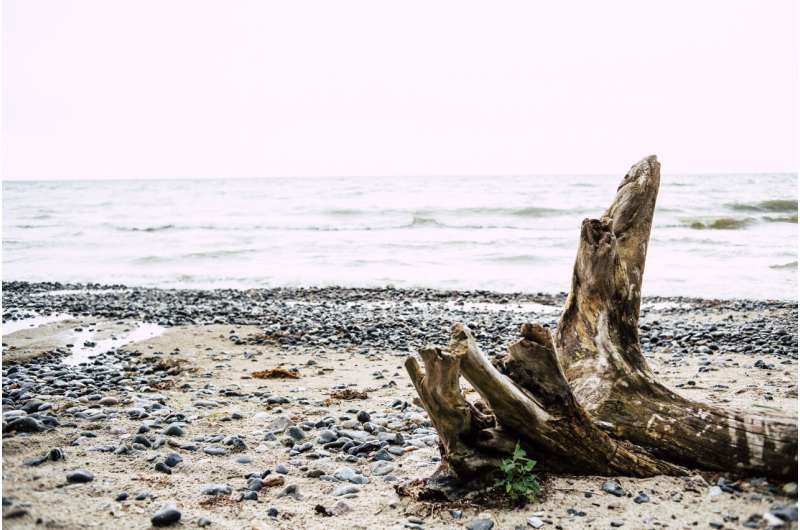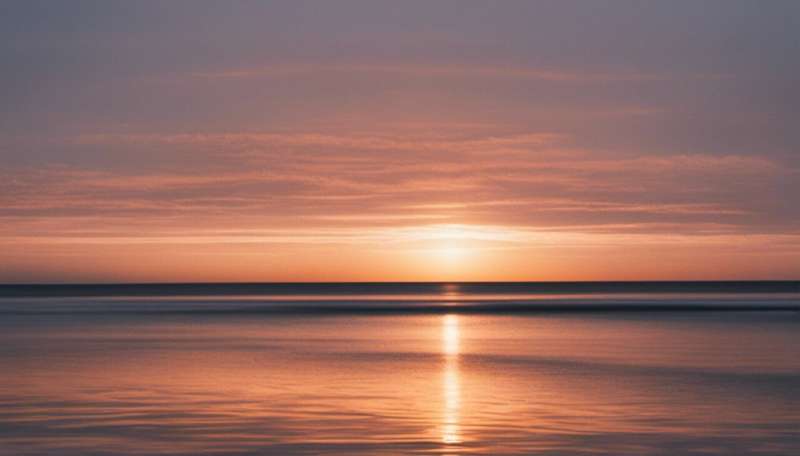The Baltic Sea needs an intervention

Nitrate pollution poses a big threat to the Baltic Sea.
And since farming is the biggest source of nitrate, much more needs to be done to reduce this source of pollution. This is the message from scientists at the BONUS 2018 conference in Poland, where scientists from around Europe gathered to discuss the future of the Baltic Sea.
Farming releases large amounts of nitrogen and phosphorous. These nutrients come from fertilisers and are carried into the sea via streams and waterways. In the Baltic, they are a source of food for algae, which can grow and bloom to such an extent that they deplete the water of oxygen.
And no oxygen quite simply means no life, says Professor Jens Christian Refsgaard from the Geological Survey of Denmark and Greenland (GEUS). He is the leader of the SOILS2SEA research project, which is investigating how changes in climate and agricultural practices affect the transfer of such nutrients into the Baltic Sea.
Emissions from farming are invisible
Reducing nitrate emissions from farming is however, easier said than done.
Regulating emissions from farming is much trickier than other sources of nitrate, such as from industry or individual cities.
"Industrial and municipal waste comes out of a pipe. You can see it. And you know that you can put technology on that pipe to treat it," says James Shortle, professor in agricultural and environmental economics at the Pennsylvania State University, USA. Shortle was one of the keynote speakers at the conference.
But unfortunately, finding the source of agricultural pollution is not so simple.
"Some people would call the agricultural problem 'hidden'," says Shortle.
"It seeps into the ground water, then it moves in ground water and flows into streams. You'll never see it, it's just percolating into the water. So there's no pipe, it's just coming out of the base flow into a stream," he says.
This makes it extremely difficult to identify the polluter, he says.
Adapt farming to nature
According to Refsgaard, there is a way around this. It's called spatial differentiation of agriculture.
This means that you organise production on the farm according to nature, such as choosing the right type of crops and fertilization for the individual fields.
In some places, nitrate is removed naturally. For example, if water flows through a part of the soil called the "reduced zone" (located some meters below ground surface) nitrate will be transformed to atmospheric nitrogen, and removed from the water.
So on these fields, restricting farmers' choice of crops and fertilisation has no effect.

But such mitigation measures could be implemented on other fields, where nature removes less nitrate, says Refsgaard.
"It will hit agriculture"
Refsgaard recognises that bringing the Baltic Sea back to good health will be difficult.
"It requires a severe intervention. It will hit farming hard," says Refsgaard.
"In Denmark, we have already halved nitrate emissions since 1980. But that initiative was easier and cheaper—low hanging fruit. The last step is much more difficult."
Spatial differentiation is one possible solution, which offers a more cost effective solution by exploiting nature's own capacity to remove nutrients before they reach the sea, he says.
But unless new governance systems are adopted, it risks taking the decision making power over which crops are grown where away from farmers.
"But one of the key conclusions from Soils2Sea is that a new governance system is required to achieve the benefits from spatial differentiation. This new co-governance based system will do the opposite, namely give more power or influence to the farmers," says Refsgaard.
And while a number of scientific issues remain, the main barrier now is whether there is political will to solve the problem, he says.
We need an involved process
It's a complicated situation, which requires involvement from all parties in an open process, says Flemming Gertz, geologist and farming consultant for SEGES, an agricultural consultancy firm based in Denmark, who also attended the conference.
SEGES is part of the Danish Agriculture and Food Council, which represents the farming and food industry in Denmark.
According to Gertz, farmers have tended to be excluded from the decision-making, and greater involvement could make the necessary steps more digestible for the agricultural sector.
"It's a significant culture change that is needed: From a general regulation and top-down decision-making process, which has been a tradition in Denmark, to a more inclusive process," says Gertz.
Farmers need incentives
Professor Jørgen Olesen from the Department of Agroecology—Climate and Water, at Aarhus University, Denmark, also wants to see greater inclusion of farmers, along with financial incentives for them to get involved.
"I think we lack incentives, which foster innovation among farmers to find solutions," says Olesen, who is also involved in the SOILS2SEA project.
"Most farmers want to help to solve these problems. But they also want to be recognised for it," he says. "And the best incentive is of course, when it comes with a monetary return."
Provided by ScienceNordic
This story is republished courtesy of ScienceNordic, the trusted source for English-language science news from the Nordic countries. Read the original story here.


















